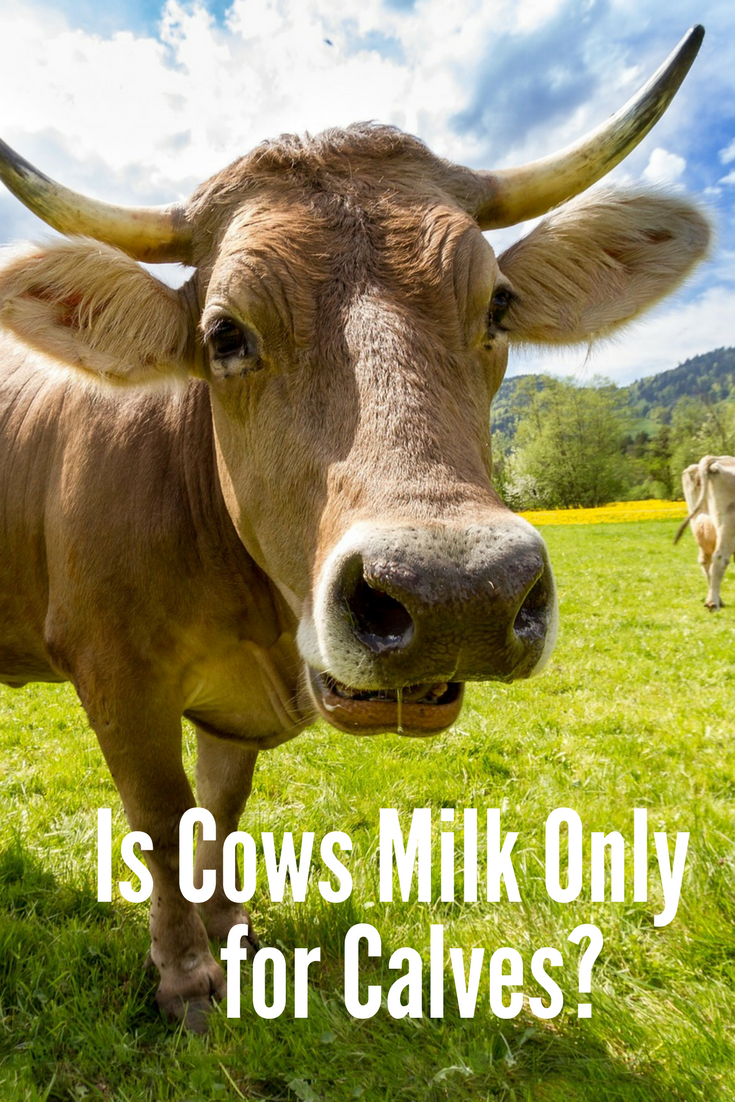
One of the biggest myths perpetuated today is that dairy is unhealthy.
Even more, the discussion of dairy can sometimes result in the comment that milk is for baby calves, and human milk is for humans.
Therefore, cow milk is not for humans.
Or is it? I say yes – but you might disagree.
I completely respect those who don’t wish to drink milk – that’s completely your individual choice. But when it comes to discussing milk, it’s important to know why I believe it is wonderful for humans.
#1 – Cows Milk is Only for Baby Calves
One of the most popular arguments about milk is that cow milk is only for baby calves and breast milk is for humans. Therefore, humans shouldn’t consume cows milk since it is only for their species, just like goat milk is for baby goats, etc.
In fact.. the Daily Meal mentioned this on their website:
We seem to be the only species of mammals that drink milk after infancy, and definitely the only species that drinks another species’ milk. Cow’s milk is not designed for human consumption. … So why is it that humans feel the need to continue drinking milk after they are weaned from breast milk?
Believe it or not, many mammals drink other mammals milk – and in many cases they would drink it if they could!
“Many mammals drink other mammals milk. For instance, pigs are notorious for breaking into the dairy barn just to drink from the cows. Some animals nurse orphan animals from other species. Primates love cows milk and ask for it from their handlers. Raccoons prefer it when dumpster diving and scrounging in cities. The Red Billed Oxpecker perches on the udders of Impala and drinks their milk.
On Isla de Guadalupe, feral cats, seagulls and sheathbills regularly steal the milk directly from the teats of elephant seals. Predators in African savannahs fight over the full udders they have hunted down. Most animals would gladly consume milk if you gave it to them. They just lack the access, brain power and opposable thumb to get it.”
Dawn Gifford at Small Footprint Family
The dogs at our local raw dairy farm are fed milk – as do the cats that try to get in to the farm shop.
Cows milk is definitely much richer in protein – that protein supports the muscles of baby calves quite well. Human breastmilk, on the other hand, is high in fatty acids that serve to support the grain of a newborn baby in its first few years of life.
Just because cow milk has a higher protein content doesn’t necessarily mean that it’s strictly only for calves.
#2 – Dairy is unhealthy and causes allergies, and intolerance
“Thus… the proof that it isn’t for humans.”
One of the reasons for the onslaught of dairy allergies and intolerance is due in part to the processing of the milk (pasteurization/homogenization) of the dairy, and the feed given to the cows.
There is a relatively huge difference between pasteurized dairy and raw dairy – pasteurized dairy is the result of cows that are fed an unnatural (and often times) GMO feed, kept in a confinement operation, and in many cases, given growth hormones and antibiotics.
Raw dairy is the result of cows that are grazing on green grass, for milk that is not pasteurized or homogenized.
The truth is that milk CAN be bad for the body – if it is pasteurized. Pasteurized milk is an allergen and can in many cases contribute to food allergies – this is because pasteurization has changed the proteins in the milk and therefore causes irritation to the gut.
Pasteurized milk doesn’t have the enzyme lactase, which helps your body digest those milk proteins.
All this dead bacteria in raw milk actually triggers inflammation in your body because your body doesn’t recognize these waste products… Your body then reacts by mast cells breaking open, histamines being released, and things like asthma and inflammation flaring like crazy; mucus being laid down, which causes ear infections.
Raw milk does exactly the opposite…
[T]he milk is alive [with beneficial] bacteria and your body recognizes it… [These beneficial bacteria] colonize and become part of your immune system.” (Src & Src)
Lactase is the enzyme that is needed to digest lactose, the sugar found in milk – and humans produce high levels of lactose during their infant years.
Because infants drink ONLY milk, this is nature’s solution.
Around the age of 4 or 5 years old, the body’s ability to produce lactase decreases – but does not go away completely. This is due in part to the human body’s ability to eat regular foods.
Given the argument that humans shouldn’t drink milk because our body doesn’t produce lactase isn’t correct – our body does produce lactase. In our infant years our diet relies ONLY on human milk – therefore our level of lactase production is much higher.
As we age, we have less lactase production because we don’t “only” rely on milk. We eat a diet rich in many other foods too.
The takeaway?
Raw milk has the lactase enzyme that we need to digest milk completely.
Pasteurized milk, on the other hand, does not have that enzyme – the heat of pasteurization has killed that enzyme and much of the vitamins/minerals in the milk.
It wasn’t until 1987 that we saw pasteurized milk and dairy.
“Pasteurization of milk was developed out of necessity — as concentrated animal feed operations became more popular, cows in confinement became a situation that farmers knew would be difficult to deal with.
Confinement combined with an unnatural diet of grain resulted in less than healthier milk that was lacking in crucial vitamins and minerals, and very heavy in pathogenic bacteria.
Pasteurization stepped in to kill that pathogenic bacteria, while at the same time killing all beneficial (necessary) bacteria – vitamins, enzymes, minerals and lactase needed for digestion.” — more HERE.
In most of these cases with intolerance and allergies, it’s due in part to the pasteurization and homogenization.
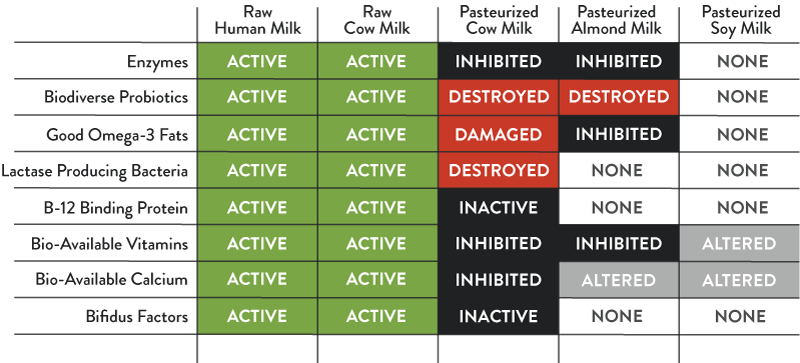
Picture Credit: Redmond Heritage Farms
Raw milk is unpasteurized and has the lactase enzyme that allows for proper digestion.
Those that claim that it’s not meant for humans because it’s propensity to cause allergies and intolerance then are not differentiating between raw milk and pasteurized milk.
#3 – Milk has hormones – those hormones aren’t good for us
One of the biggest claims about the unhealthy milk rests on the suspicion that milk has hormones – lots, and lots of hormones.
That suspicion is true – with a few exceptions. Cows that are raised in confinement here in the United States are supplied with rBGH (Bovine Growth Hormone) – which helps them produce more milk, and helps them gain weight faster.
Believe it or not, Bovine Growth Hormone (which is banned in other countries) is completely legal here. However…. while cows raised in confinement are given additional hormones, pasteurized cows from raw milk farms are not.
Cows that are raised on pasture, in an environment that allows them to live as nature intended are not supplemented with additional hormones (like rBGH) – these cows have very low amounts of hormones which are a normal part of their body.
If you think natural hormones in pastured cows are unsafe and bad, then you probably wouldn’t want to know that many other foods have hormones – in fact, all it takes is a quick Google search to find out that hormones exist even in plant based foods.
Unless fermented, regular soy products contain phytoestrogens that cause a disruption to your thyroid – despite those that defend soy as being perfectly safe and a wonderful source of plant-based protein.
Soy contains high levels of phytic acid that can leach calcium, magnesium, zinc and iron from the diet and lead to nutrient deficiencies in children.
#4 – Dairy has carrageenan
“Humans don’t need carrageenan – so we should avoid dairy because dairy has carrageen.”
You are right on the money – most dairy does have carrageenan – but so do most rice, hemp, coconut, almond and soy milk varieties (unless you look for one without), as well as most organic pasteurized dairy milks in your grocer.
Carrageenan is a highly processed food additive that is derived of seaweed (red algae), and is used as a food thickener and stabilizer. It has been used most recently in modern processed food to include non-dairy milks (hemp, coconut, almond, soy, and rice milk), and in most if not all commercial dairy products to include those that are low and no fat. (low fat and no fat generally isn’t a healthy option)
#5 – Our ancestors didn’t drink milk
#6 – The history of milk led to disease
Pasteurization of milk was developed out of necessity — as concentrated animal feed operations became more popular, cows in confinement became a situation that farmers knew would be difficult to deal with.
Unfortunately this pasteurized milk is now the number one allergic food in the U.S. Raw Milk, on the other hand, is not pasteurized, and is a promoter of life and growth. It is not adulterated.
Raw milk contains: 22 amino acids, including 8 that are essential. Because they are in an unaltered state, they are completely available for use by our bodies. Raw milk contains unaltered fats that provide fat soluble vitamins and fatty acids that are completely available, and nutrients that are present and necessary for the body to absorb the protein and calcium.
#7 – The China Study says that milk causes disease
To drink or not to drink?
There might still be questions in your mind as to the safety of drinking raw milk – after all, the controversy surrounding raw milk and it’s safety. However… most people don’t have the full story, so it’s easy to jump into the discussion without a valid understanding of the history and agenda.
Many people are concerned about drinking it because of the negative connotation that is perpetuated by the Food and Drug Administration, Milk Advisory Board and more.
Pastured cattle that are free to roam, enjoy the sun, and are loved and well taken care of will produce lovely, nutrient rich raw milk. It’s important that the farmer use non-toxic farming practices, and proper hygiene.

Photo Credit: LewRockwell.com
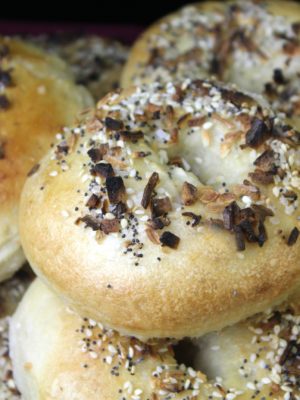
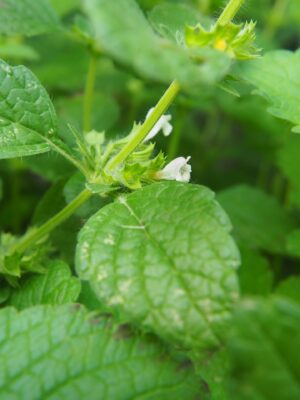
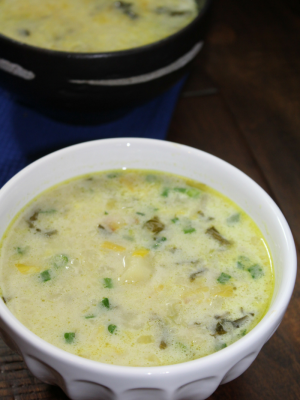
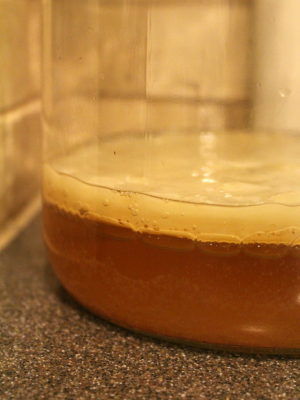
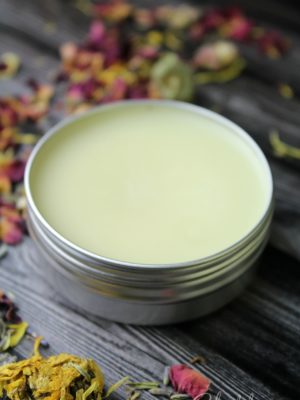
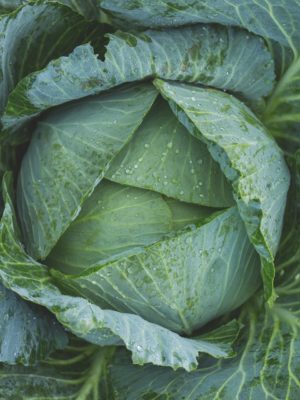
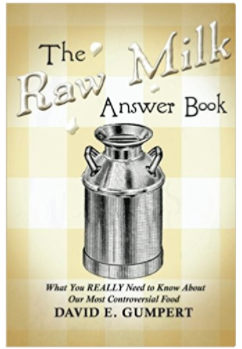

[…] I agree that some dairy is), it’s also not for humans. While we have dispelled that “not for humans” myth, the other reality is that raw and pasteurized dairy are entirely […]